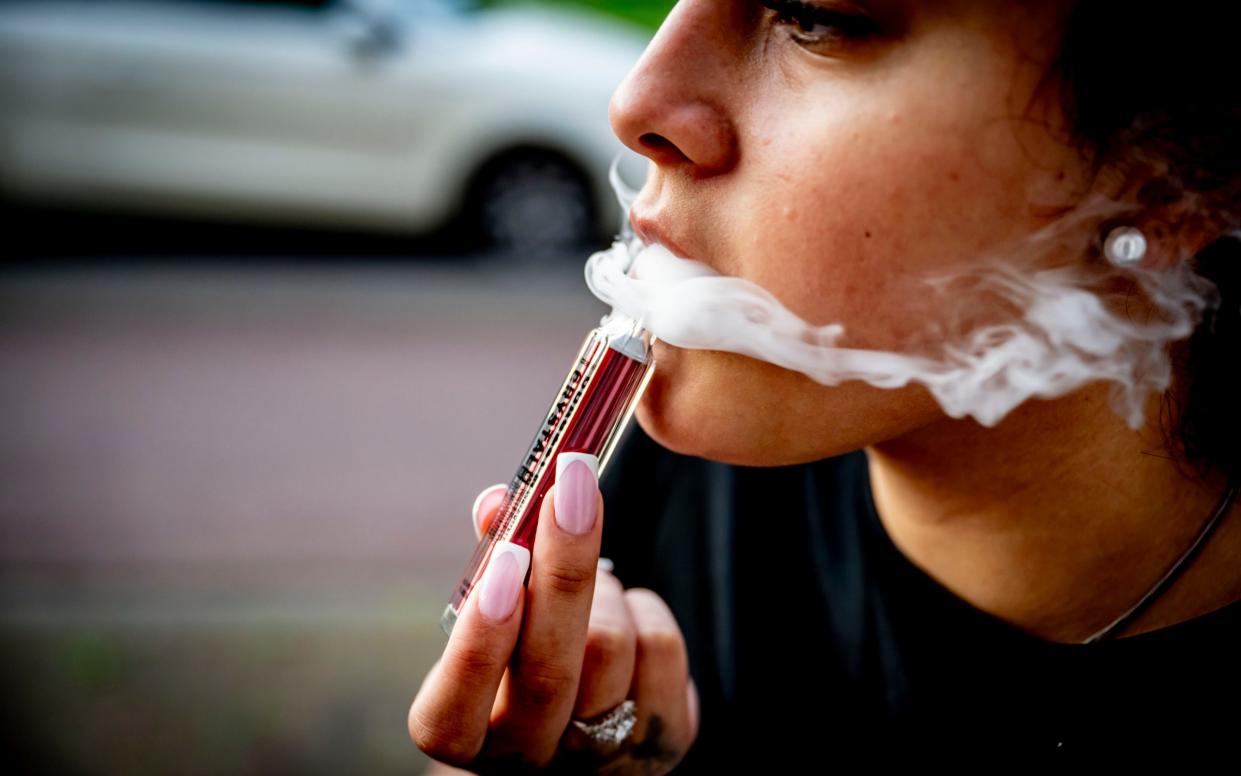Vape ban could lead to smoking comeback among children, scientists fear

The vaping craze could lead to more children smoking cigarettes if a ban is brought in on e-cigarettes, scientists fear.
Experts caution that children and young adults who have become addicted to nicotine as a result of using vapes could turn to tobacco if politicians succeed in outlawing disposable e-cigarettes.
Vaping is booming in popularity, especially among young people, due to the colourful designs and a range of flavours, scientists say.
It is illegal for vapes to be sold to under-18s and legislation to ban them was announced earlier this year but was paused as a result of the dissolution of Parliament in the run-up to the general election.
Scientists warn that many young people do not know that smoking is worse for health than vaping.
Reduced public health messaging about the life-threatening harms of smoking combined with youths regularly seeing stories about health issues said to be caused by vaping has led to teenagers being less informed about the risks of smoking than previous generations, a study found.
Scientists at East Anglia University interviewed 29 young people aged between 16 and 20 and found that if vapes are banned, many users will switch over to smoking tobacco.
‘Potentially use tobacco instead’
“Our data does suggest that one unintended consequence of a complete ban on disposables would be that young people would choose to purchase illicit products, or potentially use tobacco instead,” said Caitlin Notley, professor of addiction studies at the University of East Anglia and director of the Lifespan Health Research Centre, a study co-author.
“This would clearly be a very bad outcome for public health as our data did demonstrate that some young people viewed vaping and tobacco smoking as interchangeable, both in terms of harm and behaviourally.
“It is a concern that a ban may encourage increased tobacco smoking or increased use of illicit, unregulated, vaping products.”
Both Labour and the Conservatives supported the vape ban and the anti-smoking legislation that aims to create a “smoke-free generation”, but research reveals the policy may have unintended consequences.
Writing in the study, published in the journal Addiction, the study authors say vaping has been “normalised” in the population and many young people see no difference between smoking and vaping, despite smoking being much worse for health.
Prof Notley said there has been “years of reduced investment” in public health messaging about the harms of smoking.
Harm from vaping
This has come at the same time as anecdotal stories of harm from vaping, with the two factors fostering an incorrect belief among young people that vaping and smoking are of equal harm.
“It is my opinion that young people are likely to hold misperceptions about the relative harmfulness of vaping as they are exposed to many negative vaping stories via the media and social media, yet have relatively little exposure to accurate educational messages about the extreme harm of tobacco smoking,” Prof Notley added.
“We should invest in education campaigns giving clear evidence-based messages on the harms of tobacco smoking.
“This, in my opinion, should include messages on the relative risks of vaping – much less harmful than tobacco smoking but not harm free.”
She added that vaping is a useful tool to help people stop smoking and should continue to be seen as a positive transition for smokers to make.
However, it is also important to ensure young people who do not smoke do not get addicted to nicotine as a result of using vapes.
“My opinion is that we should have clear education campaigns positioning vaping as a smoking cessation approach,” said Prof Notley.

 Yahoo News
Yahoo News 
